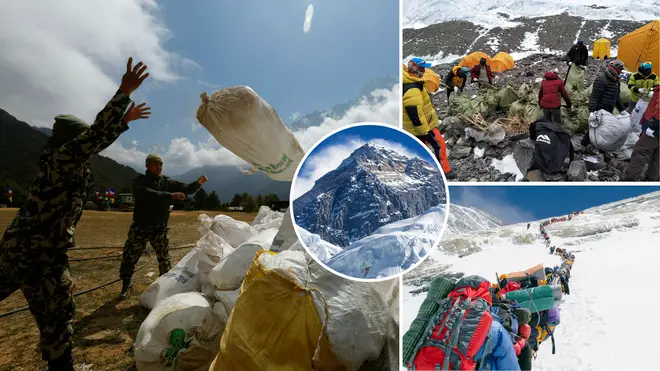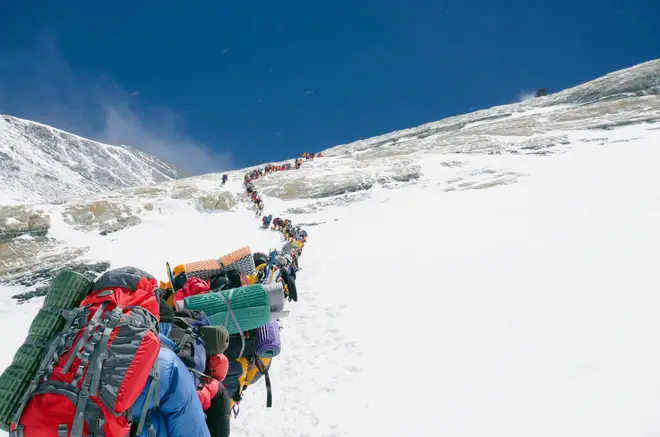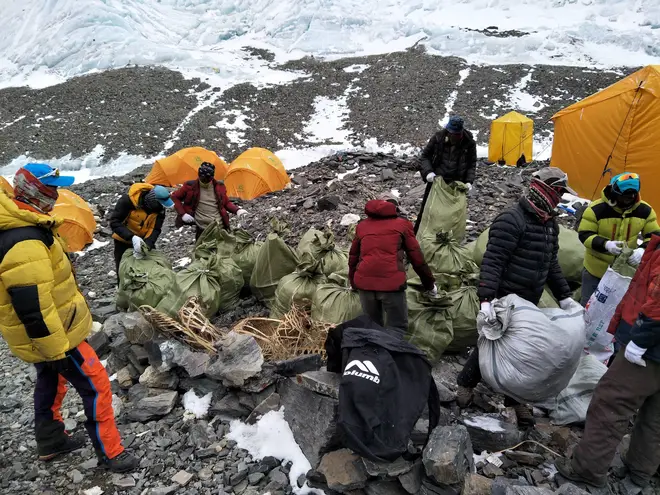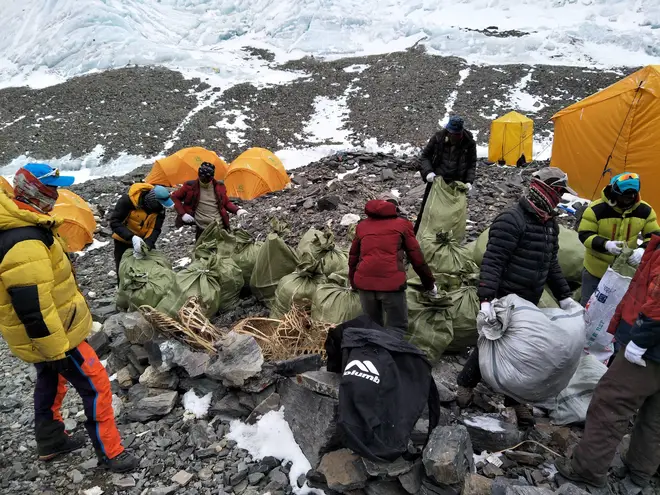
Tom Swarbrick 4pm - 7pm
9 February 2024, 13:47 | Updated: 9 February 2024, 14:25

Hundreds of people attempt to climb Mount Everest each year, but the numbers may dwindle in future years with introduction of a new rule about waste.
Avid climbers are now being told to bring their own excrement back down to base camp.
"Our mountains have begun to stink," Mingma Sherpa, chairman of Pasang Lhamu rural municipality said.
“We are getting complaints that human stools are visible on rocks and some climbers are falling sick. This is not acceptable and erodes our image," he added.
Until now, adventurers had two options to go to the loo. Either, they would dig holes in the ground - or they would have conduct their business in the open.
Read more: Helicopter with five tourists on board including two men aged 95 and 98 crashes near Mount Everest

The freezing -60C weather means that stools do not break down and are visible to hundreds of passers-by.
To flush away this issue, Pasang Lhamu will now force Mount Everest’s climbers, and those scaling the nearby Mount Lhotse, to order poo-bags at the base camp to collect their waste.
The bags will be "checked on their return", meaning that this rule cannot be avoided.
Although this sounds unsavoury, the bags have been designed to make the collection as dignified as possible.
Chemicals in the bags solidify the poo and make the faecal matter "largely odourless," according to the BBC.
Each bag has also been created to be used five to six times, meaning that climbers should only really need to take two with them on their adventures.

Poo bags have been used before for other mountains, including Mount Denali - the highest peak in North America - and the Antarctic.
As well as making the mountain the tallest toilet in the world, decades of mountaineering have turned Everest into the highest rubbish dump.
In an attempt to combat the issue, Nepal created a £3,000 rubbish deposit per team that would be refunded if each mountaineer brought down at least eight kilograms of waste.
On the Tibetan side of the Himalayan mountains, climbers are made to bring down the same amount and are charged £75 per kilogram if they do not.
In 2017, climbers in Nepal removed 25 tonnes of rubbish, and 15 tonnes of human waste, according to the Sagarmatha Pollution Control Committee (SPCC).

This amounts to a staggering weight of three double-decker buses.
However, many of those climbing decide to give up the deposit, a fraction of what it costs to climb the mountains, which is around £15,000 to £75,000.
A dedicated rubbish collection team would be another solution, according to Ang Tsering Sherpa, former president of the Nepal Mountaineering Association.